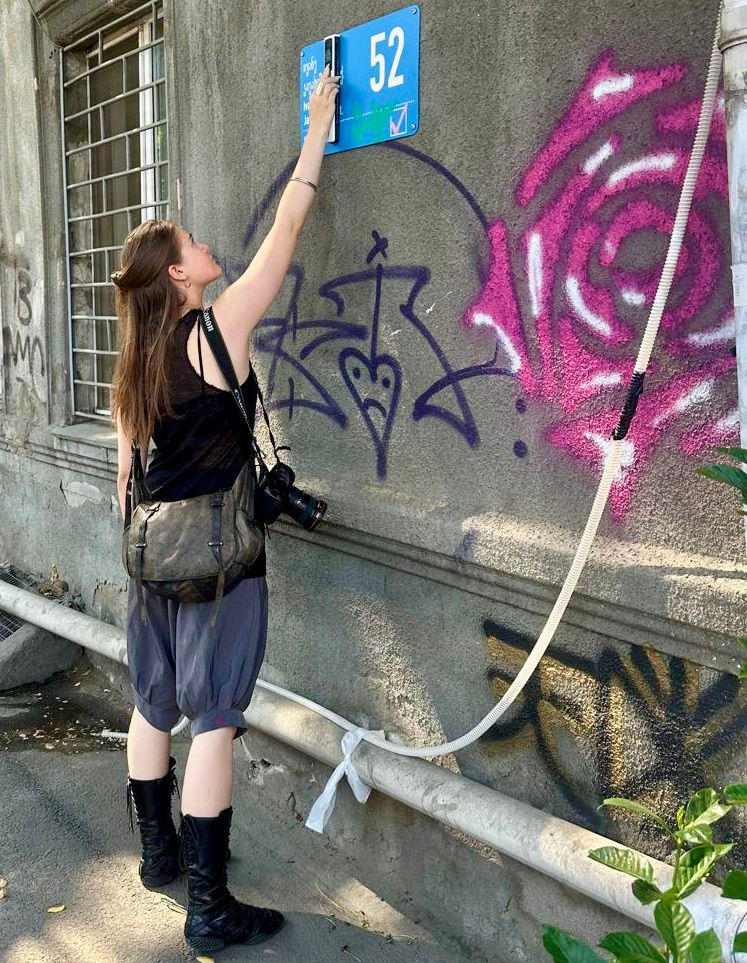Vicky Stogiannidou, University of Cambridge
- ivyoptionswebsite
- Feb 3, 2025
- 4 min read

A dual citizen of the US and Greece, and raised in Dubai, Vicky studied biology at the University of Bath. However, she wanted to step beyond the confines of pure science and into the commercialization and business side of the field. To do this, she is now pursuing a Master’s in Bioscience Enterprise at the renowned University of Cambridge. She provides a window into her new life in Cambridge and what led her there.
IO: Hi Vicky. Congratulations on pursuing your Master’s at your top choice school! When did you start?
Vicky: I commenced my one-year Master of Philosophy (MPhil) in Bioscience Enterprise at the University of Cambridge in September 2024.
IO: What is Bioscience Enterprise? Please describe the program and why you were drawn to this field.
Vicky: During my undergraduate studies in biology at the University of Bath, I found myself deeply immersed in science through labs and research, but I felt like I was working on just one piece of a much larger puzzle. I also realized that I wanted to step beyond the confines of pure science and into the commercialization and industry side of things. I felt that by bridging the gap between science and business, I could have a greater impact.
My master’s will equip me with an understanding of the commercial, financial, and strategic aspects of the life sciences industry, whether that be understanding the regulatory pathways for novel gene therapies, assessing the market potential of personalized medicine, or identifying opportunities for biotech start-ups. My interdisciplinary Master’s program encompasses modules in biotechnology, business strategy, intellectual property, and the ethical, legal, and regulatory aspects of bringing scientific innovations to market.
IO: How has the academic experience been so far, as well as living in Cambridge?
Rather than traditional academic lectures, our sessions are led by industry professionals—founders, CEOs, and key stakeholders in the biotech and healthcare sectors. This provides invaluable first-hand insights into the challenges and opportunities of the industry. For instance, we recently had a session with Dr. Uday Phadke, CEO of Cartezia Cambridge and a leading expert in science and technology innovation. He shared invaluable insights on the challenges of commercialising scientific breakthroughs and scaling up technology-enabled businesses. Additionally, we were taught by senior AstraZeneca executives, who provided a deep dive into the complexities of bringing a drug from discovery to market. Living in Cambridge is equally inspiring. The city’s vibrant and dynamic atmosphere, enriched by a diverse student body, fosters innovation and entrepreneurship.
IO: Outside of academics, what are your extracurriculars?
Vicky: I am a member of the Cambridge Union, the oldest debating society in the world, where I participate in weekly current affairs debates on topics such as, “Should vaccinations be mandatory in the UK?” Additionally, I am involved in the i-Teams program, which collaborates with the inventors of Cambridge Surgical Models to assess the commercial viability of their human organ model technology. Exploring new interests, I have joined the Judo Society, and recently served as a board member for YNG London, a global community of young entrepreneurs.
IO: What do you aspire to do after you’ve completed your masters?
Vicky: Ideally, I’d like to be in London working in the venture capital industry; I would be at the forefront of scientific and technological breakthroughs. One firm I particularly admire is Advent Life Sciences, known for its focus on investing in innovative life sciences companies that are addressing unmet medical needs. Currently, I am in the process of applying for summer internships, either in venture capital or consulting. This will give me a head start in gaining practical experience in the investment landscape.
IO: Did you go straight from your undergrad program to your Master’s at Cambridge?
Vicky: No. After graduating in 2021, I joined a digital health-tech startup, Klarity, which provides personalized AI-led disease risk prediction solutions. Following this, I completed a six-month internship in the Medical Affairs department of Boehringer Ingelheim. Later, I joined Research Partnership, a global healthcare market research consultancy in London, where I focused on providing strategic insights to pharmaceutical clients. Working in these roles sparked my interest in bridging the gap between scientific innovation and market application, leading me to Cambridge.
IO: What was the undergraduate application process like compared to applying to Cambridge?
Vicky: My undergraduate process felt straight forward and like an expanded version of my CV. Applying to Cambridge was much more rigorous. Beyond academic credentials and a strong personal statement, I had to interview and demonstrate work experience. Overall, it demanded a higher level of self-reflection and a clear vision for my future goals.
IO: Given your past experience, what advice do you have for high school students who are launching into their college applications?
Vicky: Get involved in as many things as possible—both academically and outside of school. Every opportunity, no matter how small or seemingly unrelated, contributes to your personal and professional growth in ways you might not initially realise. Whether it’s starting your own venture, joining the debate society, taking on leadership roles, or doing internships—just put yourself out there and maximize the experiences. These not only help you build a strong network and skill set but shape you into a well-rounded, curious individual who’s willing to step out of their comfort zone and embrace new challenges. That mindset is invaluable, both for university applications and beyond.



Comments